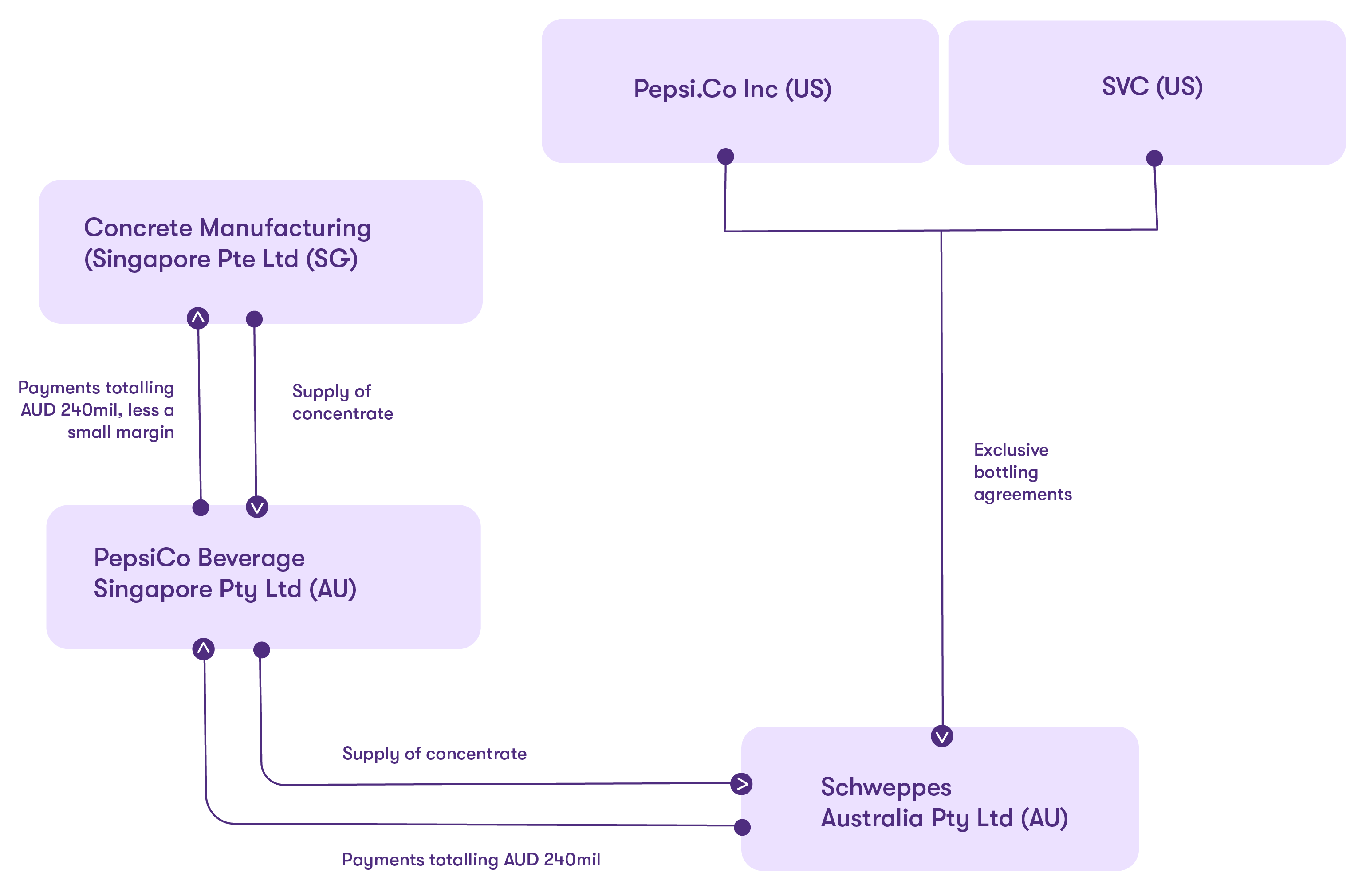- Market services
-
Compliance audits & reviews
Our audit team undertakes the complete range of audits required of Australian accounting laws to help you to help you meet obligations or fulfil best practice procedures.
-
Audit quality
We are fiercely dedicated to quality, use proven and globally tested audit methodologies, and invest in technology and innovation.
-
Financial reporting advisory
Our financial reporting advisory team helps you understand changes in accounting standards, develop strategies and communicate with your stakeholders.
-
Audit advisory
Grant Thornton’s audit advisory team works alongside our clients, providing a full range of reviews and audits required of your business.
-
Digital assurance
We capture actionable, quality insights from data within your financial reporting and auditing processes.

-
Corporate tax & advisory
We provide comprehensive corporate tax and advisory service across the full spectrum of the corporate tax process.
-
Private business tax & advisory
We work with private businesses and their leaders on all their business tax and advisory needs.
-
Tax compliance
We work alongside clients to manage all tax compliance needs and identify potential compliance or tax risk issues.
-
Employment tax
We help clients understand and address their employment tax obligations to ensure compliance and optimal tax positioning for their business and employees.
-
International tax
We understand what it means to manage tax issues across multiple jurisdictions, and create effective strategies to address complex challenges.
-
GST, stamp duty & indirect tax
Our deep technical knowledge and practical experience means we can help you manage and minimise the impact of GST and indirect tax, like stamp duty.
-
Tax law
Our team – which includes tax lawyers – helps you understand and implement regulatory requirements for your business.
-
Innovation Incentives
Our national team has extensive experience navigating all aspects of the government grants and research and development tax incentives.
-
Transfer pricing
Transfer pricing is one of the most challenging tax issues. We help clients with all their transfer pricing requirements.
-
Tax digital consulting
We analyse high-volume and unstructured data from multiple sources from our clients to give them actionable insights for complex business problems.
-
Corporate simplification
We provide corporate simplification and managed wind-down advice to help streamline and further improve your business.
-
Superannuation and SMSF
Increasingly, Australians are seeing the benefits, advantages and flexibility of taking control of their own superannuation and retirement planning.

-
Payroll consulting & Award compliance
Many organisations are grappling with a myriad of employee agreements and obligations, resulting in a wide variety of payments to their people.
-
Cyber resilience
The spectrum of cyber risks and threats is now so significant that simply addressing cybersecurity on its own isn’t enough.
-
Internal audit
We provide independent oversight and review of your organisation's control environments to manage key risks, inform good decision-making and improve performance.
-
Financial crime
Our team helps clients navigate and meet their obligations to mitigate crime as well as develop and implement their risk management strategies.
-
Consumer Data Right
Consumer Data Right (CDR) aims to provide Australians with more control over how their data is used and disclosed.
-
Risk management
We enable our clients to achieve their strategic objectives, fulfil their purpose and live their values supported by effective and appropriate risk management.
-
Controls assurance
In Australia, as with other developed economies, regulatory and market expectations regarding corporate transparency continue to increase.
-
Governance
Through fit for purpose governance we enable our clients to make the appropriate decisions on a timely basis.
-
Regulatory compliance
We enable our clients to navigate and meet their regulatory and compliance obligations.

-
Forensic accounting and dispute advisory
Our team advises at all stages of a litigation dispute, taking an independent view while gathering and reviewing evidence and contributing to expert reports.
-
Investigations
Our licensed forensic investigators with domestic and international experience deliver high quality results in the jurisdictions in which you operate.
-
Asset tracing investigations
Our team of specialist forensic accountants and investigators have extensive experience in tracing assets and the flow of funds.

-
Mergers and acquisitions
Our mergers and acquisitions specialists guide you through the whole process to get the deal done and lay the groundwork for long-term success.
-
Acquisition search & strategy
We help clients identify, finance, perform due diligence and execute acquisitions to maximise the growth opportunities of your business.
-
Selling a business
Our M&A team works with clients to achieve a full or partial sale of their business, to ensure achievement of strategic ambitions and optimal outcomes for stakeholders.
-
Operational deal services
Our operational deal services team helps to ensure the greatest possible outcome and value is gained through post merger integration or post acquisition integration.
-
Transaction advisory
Our transaction advisory services support our clients to make informed investment decisions through robust financial due diligence.
-
ESG Due Diligence
Our ESG due diligence process evaluates a company's environmental, social, and governance factors during the pre-investment phase to determine the overall maturity of the entity, manage potential risks, and identify opportunities.
-
Business valuations
We use our expertise and unique and in-depth methodology to undertake business valuations to help clients meet strategic goals.
-
Tax in mergers & acquisition
We provide expert advice for all M&A taxation aspects to ensure you meet all obligations and are optimally positioned.

-
Corporate finance
We provide effective and strategic corporate finance services across all stages of investments and transactions so clients can better manage costs and maximise returns.
-
Debt advisory
We work closely with clients and lenders to provide holistic debt advisory services so you can raise or manage existing debt to meet your strategic goals.
-
Working capital optimisation
Our proven methodology identifies opportunities to improve your processes and optimise working capital, and we work with to implement changes and monitor their effectiveness.
-
Capital markets
Our team has significant experience in capital markets and helps across every phase of the IPO process.
-
Debt and project finance raising
Backed by our experience accessing full range of available funding types, we work with clients to develop and implement capital raising strategies.
-
Private equity
We provide advice in accessing private equity capital.
-
Financial modelling
Our financial modelling advisory team provides strategic, economic, financial and valuation advice for project types and sizes.
-
Payments advisory
We provide merchants-focused payments advice on all aspects of payment processes and technologies.

-
Voluntary administration & DOCA
We help businesses considering or in voluntary administration to achieve best possible outcomes.
-
Corporate insolvency & liquidation
We help clients facing corporate insolvency to undertake the liquidation process to achieve a fair and orderly company wind up.
-
Complex and international insolvency
As corporate finance specialists, Grant Thornton can help you with raising equity, listings, corporate structuring and compliance.
-
Safe Harbour advisory
Our Safe Harbour Advisory helps directors address requirements for Safe Harbour protection and business turnaround.
-
Bankruptcy and personal insolvency
We help clients make informed choices around bankruptcy and personal insolvency to ensure the best personal and stakeholder outcome.
-
Creditor advisory services
Our credit advisory services team works provides clients with credit management assistance and credit advice to recapture otherwise lost value.
-
Small business restructuring process
We provide expert advice and guidance for businesses that may need to enter or are currently in small business restructuring process.
-
Asset tracing investigations
Our team of specialist forensic accountants and investigators have extensive experience in tracing assets and the flow of funds.

-
Independent business reviews
Does your company need a health check? Grant Thornton’s expert team can help you get to the heart of your issues to drive sustainable growth.
-
Commercial performance
We help clients improve commercial performance, profitability and address challenges after internal or external triggers require a major business model shift.
-
Safe Harbour advisory
Our Safe Harbour advisory helps directors address requirements for Safe Harbour protection and business turnaround.
-
Corporate simplification
We provide corporate simplification and managed wind-down advice to help streamline and further improve your business.
-
Director advisory services
We provide strategic director advisory services in times of business distress to help directors navigate issues and protect their company and themselves from liability.
-
Debt advisory
We work closely with clients and lenders to provide holistic debt advisory services so you can raise or manage existing debt to meet your strategic goals.

-
Business planning & strategy
Our clients can access business planning and strategy advice through our value add business strategy sessions.
-
Private business company secretarial services
We provide company secretarial services and expert advice for private businesses on all company secretarial matters.
-
Outsourced accounting services
We act as a third-party partner to international businesses looking to invest in Australia on your day-to-day finance and accounting needs.
-
Superannuation and SMSF
We provide SMSF advisory services across all aspects of superannuation and associated tax laws to help you protect and grow your wealth.
-
Management reporting
We help you build comprehensive management reporting so that you have key insights as your business grows and changes.
-
Financial reporting
We help with all financial reporting needs, including set up, scaling up, spotting issues and improving efficiency.
-
Forecasting & budgeting
We help you build and maintain a business forecasting and budgeting model for ongoing insights about your business.
-
ATO audit support
Our team of experts provide ATO audit support across the whole process to ensure ATO requirements are met.
-
Family business consulting
Our family business consulting team works with family businesses on running their businesses for continued future success.
-
Private business taxation and structuring
We help private business leaders efficiently structure their organisation for optimal operation and tax compliance.
-
Outsourced CFO services
Our outsourced CFO services provide a full suite of CFO, tax and finance services and advice to help clients manage risk, optimise operations and grow.
-
ESG, sustainability and climate reporting
There is a growing demand for organisations to provide transparency on their commitment to sustainability and disclosure of the nonfinancial impacts of their business activities. Commonly, the responsibility for sustainability and ESG reporting is landing with CFOs and finance teams, requiring a reassessment of a range of reporting processes and controls.
-
ESG, sustainability and climate advisory
With the ESG and sustainability landscape continuing to evolve, we are focussed on helping your business to understand what ESG and sustainability represents and the opportunities and challenges it can provide.
-
ESG, sustainability and climate reporting assurance
As the demand for organisations to prepare information in relation to ESG & sustainability continues to increase, through changes in regulatory requirements or stakeholder expectations, there is a growing need for assurance over the information prepared.
-
ESG and sustainability due diligence
As environmental, social, and governance (ESG) considerations become increasingly pivotal for dealmakers in Australia, it is important for investors to feel confident in assessing transactions through an ESG lens.

-
Management consulting
Our management consulting services team helps you to plan and implement the right strategy to deliver sustainable growth.
-
Financial consulting
We provide financial consulting services to keep your business running so you focus on your clients and reaching strategic goals.

-
China practice
The investment opportunities between Australia and China are well established yet, in recent years, have also diversified.
-
Japan practice
The trading partnership between Japan and Australia is long-standing and increasingly important to both countries’ economies.
-
India practice
It’s an exciting time for Indian and Australian businesses looking to each jurisdiction as part of their growth ambitions.
-
Singapore practice
Our Singapore Practice works alongside Singaporean companies to achieve growth through investment and market expansion into Australia.
-
Vietnam practice
Investment and business opportunities in Vietnam are expanding rapidly, driven by new markets, diverse industries, and Vietnam's growing role in export manufacturing, foreign investment, and strong domestic demand.

-
 Client Alert Wine not? Primary production land tax exemption no longer on the vineFor wine producers and vineyard owners, the recent New South Wales Civil and Administrative Tribunal decision in Zonadi Holdings Pty Ltd ATF Wombat Investment Trust v Chief Commissioner of State Revenue [2025] NSWCATAD 84 may spell trouble for their current primary production land tax exemptions.
Client Alert Wine not? Primary production land tax exemption no longer on the vineFor wine producers and vineyard owners, the recent New South Wales Civil and Administrative Tribunal decision in Zonadi Holdings Pty Ltd ATF Wombat Investment Trust v Chief Commissioner of State Revenue [2025] NSWCATAD 84 may spell trouble for their current primary production land tax exemptions. -
 Client Alert Unlock 2025: government grants updateIf government grants are part of your 2025 strategy, take note of the available quarter one funding opportunities. With increasing inflationary pressures, government grants can be an essential alternative funding source for businesses with critical investment projects.
Client Alert Unlock 2025: government grants updateIf government grants are part of your 2025 strategy, take note of the available quarter one funding opportunities. With increasing inflationary pressures, government grants can be an essential alternative funding source for businesses with critical investment projects. -
 Report Agribusiness, Food & Beverage Dealtracker 2024Merger & Acquisition (M&A) and equity market activity in the Agribusiness, Food & Beverage (Ag, F&B) sector is undergoing a strategic shift, as investors have become more selective and increasingly cautious in response to global economic uncertainty.
Report Agribusiness, Food & Beverage Dealtracker 2024Merger & Acquisition (M&A) and equity market activity in the Agribusiness, Food & Beverage (Ag, F&B) sector is undergoing a strategic shift, as investors have become more selective and increasingly cautious in response to global economic uncertainty. -
 Client Alert Government Grants in FY25As we embark on a new financial year, it’s crucial to take a strategic approach to understanding the government grants landscape.
Client Alert Government Grants in FY25As we embark on a new financial year, it’s crucial to take a strategic approach to understanding the government grants landscape.
-
Renewable Energy
Transformation through energy transition

-
Flexibility & benefits
The compelling client experience we’re passionate about creating at Grant Thornton can only be achieved through our people. We’ll encourage you to influence how, when and where you work, and take control of your time.
-
Your career development
At Grant Thornton, we strive to create a culture of continuous learning and growth. Throughout every stage of your career, you’ll to be encouraged and supported to seize opportunities and reach your full potential.
-
Diversity & inclusion
To be able to reach your remarkable, we understand that you need to feel connected and respected as your authentic self – so we listen and strive for deeper understanding of what belonging means.
-
In the community
We’re passionate about making a difference in our communities. Through our sustainability and community engagement initiatives, we aim to contribute to society by creating lasting benefits that empower others to thrive.
-
Graduate opportunities
As a new graduate, we aim to provide you more than just your ‘traditional’ graduate program; instead we kick start your career as an Associate and support you to turn theory into practice.
-
Vacation program
Our vacation experience program will give you the opportunity to begin your career well before you finish your degree.
-
The application process
Applying is simple! Find out more about each stage of the recruitment process here.
-
FAQs
Got questions about applying? Explore frequently asked questions about our early careers programs.
-
Our services lines
Learn about our services at Grant Thornton
-
Current opportunities
Current opportunities
-
Remarkable people
Our team members share their remarkable career journeys and experiences of working at Grant Thornton.
-
Working at Grant Thornton
Explore our culture, benefits and ways we support you in your career.
-
Current opportunities
Positions available.
-
Contact us
Get in touch
While this move was not surprising, it is significant as it evidences the ATO’s continued focus on embedded royalties, and intellectual property more generally, for tax purposes and the application of Diverted Profits Tax (DPT).
Below is a high-level timeline of the milestone dates pertinent to this case:

In addition, an overview of the recent June appeal outcome is outlined below.
PepsiCo wins appeal
In the verdict handed down on 26 June 2024, the Full Federal Court overturned the original decision and found there was no liability for PepsiCo to remit AUD $3.6m in royalty withholding tax to the ATO for the 2018 and 2019 years. Further, the Court dismissed the Commissioner’s cross-appeal on DPT by finding PepsiCo had not obtained a tax benefit in connection with the scheme.
The Facts

As summarised in our prior article, PepsiCo and SVC entered into Exclusive Bottling Agreements (EBAs) with an Australian third party, Schweppes Australia Pty Ltd (SAPL). Under the EBAs, PepsiCo and SVC agreed to sell or nominate a related entity to sell beverage concentrate to SAPL. SAPL was to manufacture finished beverages using the concentrate, bottle, package, and sell the products to customers. In performing its activities, SAPL was granted access by PepsiCo and SVC the rights to use trademarks and other intellectual property (IP) associated with the beverages. However, per the terms of the EBAs, SAPL was to make a payment for the purchase of concentrate only. This payment was to be made to the entity supplying it with the concentrate. At the end of 2015, PepsiCo and SVC nominated Concentrate Manufacturing Singapore Pte Ltd (CMPL) to be the seller of the concentrate. CMPL was to sell the concentrate to PepsiCo Beverage Singapore Pty Ltd (PBS) who on-sold this to SAPL. As per the terms of the EBAs, SAPL made payments to PBS for the concentrate.
The original decision (November 2023)
Mohinsky J agreed with the Commissioner that the payments made by SAPL for the concentrate were in part “consideration for” the right to use IP. In addition, despite SAPL not making any payments directly to PepsiCo or SVC, the Court agreed that the payments for concentrate were income “derived by” and deemed to have been “paid to” PepsiCo and SVC. On this basis, it was found that a component of the payments should have been characterised as royalties, and royalty withholding tax was therefore payable by PepsiCo pursuant to Section 128B(2B) of the Income Tax Assessment Act 1936 (ITAA 1936).
It was also contended that, had the royalty withholding tax provisions not applied, the DPT (40 percent penalty tax rate) would have instead applied pursuant to Section 177J of Part IVA of the ITAA 1936, as PepsiCo and SVC had obtained a tax benefit in connection with the scheme and had entered into the scheme for the principal purpose of obtaining this tax benefit.
Key takeaways from the appeal decision (June 2024)
Royalty withholding tax
- In determining whether the payments made by SAPL for concentrate were in part “consideration for” the right to use PepsiCo and/or SVC’s intellectual property, the Court held it is necessary to look at the “proper construction of the EBAs”. In this regard, it was concluded that legal form is critical to delineating the character of a payment. As there was no express payment referred to in the EBAs for the use of trademarks and other intellectual property, it was determined that the payments made by SAPL were solely consideration for the sale of concentrate.
- The Court sought to identify the central premise or disposition of the EBAs, which was to grant SAPL the right to distribute beverages in Australia. The licensing of intellectual property was found to be “merely a part” or ancillary to this arrangement.
- Although The Commissioner had previously successfully argued that trademarks and other intellectual property were “granted for nothing” by PepsiCo and SVC under the EBAs, the Court differentiated between species of intellectual property rights and found that both SAPL and PepsiCo/SVC greatly benefited from the granting of the licence where:
- SAPL benefited from being able to use the goodwill attached to the trademarks, and
- PepsiCo/SVC benefited from having SAPL “sustain and promote their goodwill” in Australia.
Further, the EBAs imposed significant restrictions on SAPL’s ability to use the trademarks:
-
- SAPL was bound to use the trademarks only for the purpose of distributing PepsiCo/SVC’s particular beverages which were made in the precise way dictated by the EBAs,
- SAPL had restrictions pertaining to marketing with respect to how it used the goodwill and could not embark on its own brand strategy, and
- Rights of inspection, reporting, and testing were granted to PepsiCo/SVC and the burden this placed on SAPL to comply.
Given the above, the Court took a complete view of the licence granted by PepsiCo/SVC to SAPL and rejected the notion that PepsiCo and SVC granted the right to use trademarks for nothing unless the concentrate price embedded some value for it.
- While the Commissioner referred to three agreements where a royalty was charged by PepsiCo for the right to use a trademark, the Court distinguished these agreements from the EBAs in question as those agreements did not include the supply of concentrate by PepsiCo. It was determined in the absence of sales of concentrate, the trademarks were the only available property from which PepsiCo could generate revenue.
- PepsiCo and SVC nominated a seller for the concentrate (as they had the right to do) and SAPL made payments to the seller. However, the Commissioner successfully argued in the original hearing that the monies had been ultimately received by PepsiCo/SVC because there had been a payment by direction. On appeal, the Court concluded that an antecedent monetary obligation owed by SAPL to PepsiCo/SVC was integral for there to have been a payment by direction. As this element was lacking, the payments did not “come home” to PepsiCo/SVC. In addition, it was highlighted that The Commissioner had not reasoned that the seller was PepsiCo/SVC’s agent for the purpose of the sale. If The Commissioner had claimed this, the appeal judgement insinuated the outcome on this matter may have been different.
DPT
- The DPT applies where a scheme is entered into, and one of the principal purposes for entering into that scheme is to obtain an Australian (and potentially, foreign) tax benefit. In this case, The Commissioner contended the scheme was PepsiCo and SVC’s entry into the EBAs whereby no payment was charged for the use of IP.
- The Commissioner advanced two counterfactuals as alternate postulates, i.e., had the scheme not been entered into, the EBAs might reasonably have been expected to have:
- expressed payments made by SAPL to be for all property provided (and promises made by) the PepsiCo entities (rather than for the concentrate alone), or
- provided that the payments made by SAPL included a royalty for the use of, or right to use, the relevant trademarks and other IP.
- In determining whether either counterfactual was a reasonable postulate, the Full Court had regard to “commercial and economic substance”. They considered the commercial and economic substance of the scheme and the commercial and economic substance of both postulates to determine whether these corresponded. Upon examination, it was concluded the commercial and economic substance of the scheme was that the price paid by SAPL was for concentrate and only concentrate. In contrast, the commercial and economic substance of both alternative postulates included payments for concentrate and IP rights. In this regard, the Court concluded that the alternative postulates were not reasonable and therefore PepsiCo and SVC did not obtain a tax benefit "in connection with a scheme" for the purposes of Section 177J.
- Having obtained no tax benefit, it was subsequently found that PepsiCo and SVC could not have had a “principal purpose” of obtaining a tax benefit when entering into the scheme. However, had a tax benefit been found to exist, the Full Court agreed with the trial judge that requisite purpose was established.
Minority view
With respect to royalty withholding tax, Colvin J reasoned that the whole of the terms of the EBAs should be considered (rather than just the express terms) and he concluded at least part of the payments made by SAPL were “consideration for” the right to use IP and therefore a royalty. However, he agreed with the majority that the payments were not income derived by PepsiCo and SVC.
Following on from the above, Colvin J found the EBAs did result in a tax benefit. He contended that although PepsiCo and SVC had nominated a related entity to sell the concentrate and therefore receive payments under the EBAs, a reasonable alternative postulate was for these entities to enter into the EBAs which provided for a royalty to be paid to PepsiCo and SVC.
Summary
| Original decision | Appeal decision (majority) | Appeal decision (minority) | |
| Royalty witholding tax | |||
| Were the payments made by SAPL to PBS for concentrate, in part “consideration for” the right to use IP and therefore a royalty for the purposes of Section 128B? | Yes | No | Yes |
| Were these payments income derived by PepsiCo and/or SVC? | Yes | No | No |
| Diverted profits tax | |||
|
Did PepsiCo and/or SVC obtain a tax benefit in connection with the scheme? |
Yes | No | Yes |
| Did PepsiCo and/or SVC enter into the scheme for the principal purpose of obtaining a tax benefit | Yes | Yes | Yes |
Recommendations for impacted taxpayers
All taxpayers with cross-border arrangements involving intellectual property should take note of this outcome, and:
- Ensure there are legal agreements in place covering key dealings, which clearly articulate the rights for each party to the agreement.
- Maintain contemporaneous evidence of the commerciality of arrangements, and in particular, arrangements involving the potential exploitation of intellectual property. To the extent documentation is prepared, this should have regard to the relevant ATO guidance on this topic and provide support for the economics of the consideration paid if this is considered to be non-IP related.
- Where possible, maintain evidence about the manner in which an arrangement is entered into i.e. is there negotiation involved on pricing, what is the rationale for entering into the agreement for both parties, are both parties receiving benefits etc.
Concluding remarks
While the outcome of this appeal casts doubt on the idea of “embedded royalties” by ultimately upholding the legal form of the agreements, intellectual property will continue to be a focus area for the ATO going forward (particularly having regard to the special leave application just lodged). Further, the 2024-25 Federal Budget announced in May 2024 outlined a penalty for Significant Global Entities found to have mischaracterised or undervalued royalty payments. With this new penalty to apply from 1 July 2026, only time will tell how this provision and ATO activity in this area will play out.
Tax Agents Disclosures
The Tax Practitioners Board maintains a register of tax agents and BAS agents. You can access and search this register here.
Your engagement letter with Grant Thornton and the Standard Terms and Conditions set out our procedures for dealing with problems or complaints. The Tax Practitioners Board also has a complaints process in relation to tax agent services as outlined on their website which can be accessed here.
Section 45 of the Tax Agent Services (Code of Professional Conduct) requires Grant Thornton to notify you if it becomes aware of any matter which could significantly influence your decision to engage us or to continue to engage us in relation to the provision of tax agent services. Grant Thornton is not aware of any such matters.































